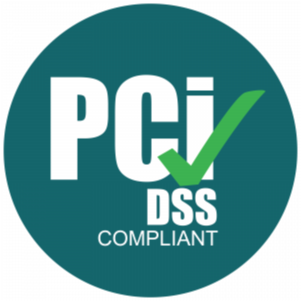Winston doesn’t scare easily, but he does cringe at the word “networking.” Since college he’s been hearing about the importance of professional networking. But, to him, it sounds too forced. He wants to get ahead based on his skills and talent alone. It might help Winston if he understand how to network better at work.
First it helps to realize networking isn’t always an awful, arduous addition. Winston could benefit from taking some time to make a plan, but then he’ll see that a lot of effective networking comes from being intentional about what he’s already doing professionally. These steps to be a better networker may help you, too.

1. Know what you want to accomplish
You’ll be more successful if you have a clear idea at the outset of your goals. Define your networking objectives. The many things you can accomplish via networking include:
- Seek job opportunities
- Get professional advice
- Explore potential business partnerships
- Gain insight into different roles, industries
- Expand your client base
- Learn from others in your industry
- Find mentors or mentees
- Identify potential candidates to recruit
- Build your interpersonal skills
- Connect with others with similar goals
2. Build an online presence
You can accomplish a lot of networking by simply staying up-to-date on LinkedIn. Maintain a professional profile on this popular networking site. Ensure that your profile has a photo, detailed work experience, and a compelling summary.
You can also join relevant online forums. You can find these at industry or trade associations, local business groups, your alumna networks, or affinity groups offered on LinkedIn or other social media. Regularly sharing relevant content and engaging with others in these groups enhances your visibility and makes it easier for others to find and connect with you.
3. Get out there
Along with networking online, it helps to attend industry events, participate in seminars and workshops, and join local business or professional organizations. Go to that holiday party! You could already be doing this, but when you think about these activities from a networking perspective you’re more likely to seek to meet new people or find time for face-to-face interactions with speakers or other participants that share your interests.
4. Remember reciprocation
Networking isn’t a one-way street. By listening actively, paying close attention to what others are saying, you may find yourself in a position to offer assistance or share resources. If you can give before you take, you’re more likely to have a network that wants to reciprocate when you are looking for help or a connection.
5. Learn how to highlight yourself
Having a well-crafted elevator pitch can help you give a concise and compelling introduction to yourself that highlights your skills, experience, and goals. Be authentic and confident (yet avoid coming across as arrogant). If you can communicate your genuine enthusiasm for the work you do and your industry while focusing on your accomplishments and successes you’ll make a more lasting, positive impression.
6. Follow up
When you do meet someone new, follow up with an email or LinkedIn connection. Take the time to personalize this contact by recalling where you met, what you discussed, and why you want to continue this valuable relationship. Additionally, be mindful of LinkedIn’s guidelines, including how many connections on LinkedIn per day are allowed, to ensure effective and respectful networking.
This is another opportunity to offer something upfront. You might share an article relevant to your previous conversation or suggest you can link this individual to another resource that might have answers for their questions.
7. Look for diversity
The broader and more diverse your network, the greater opportunity you have for fresh perspectives and new opportunities. Look beyond your background, industry, and level of experience. The Forbes Entrepreneur Council warns against discounting people as someone you might otherwise dismiss could prove a valuable connection or have knowledge you wouldn’t otherwise learn.
8. Keep learning
Continuous learning about your industry and skills development will help your career. But it also makes you a more valuable resource to your network. Plus, you can often meet more people for your network while attending a lunch-and-learn or training session.
9. Maintain relationships
Once you connect with someone, remain in contact. This can be as simple as commenting on something an individual posts on their LinkedIn page. Or you might share industry-related news in an email every few months. If you’re going again to an event by the organization where you met that individual in the first place, reach out to see if you can expect to see them again at the next activity.
10. Get used to rejection
You’re going to encounter people who don’t want to engage with you. People might be rude. You could find yourself interacting with someone you might not like. It’s all going to happen. But you’re not looking to meet a future spouse or even a friend. Continue being sincere and confident. Know that you may get shut down, but that’s just part of the process of networking.
Having a wingman can help, especially if you’re shy, but you don’t want to stick with that one person the whole time. Instead, when you’re at a function ask that person to introduce you to someone that they know. You can offer to do the same. This can soften any rejections as you’ll at least have a buddy by your side.
11. Make it all second nature
When you can make a habit of meeting new people, finding ways to help them, following up and keeping in contact on a regular basis networking becomes just part of your day-to-day. Instead of seeing it as a chore, you can find yourself making meaningful connections that serve your objectives without having to give yourself a pep talk first.
Build up your professional network
Effective networking is a continuous process. If you were like Winston, looking at networking as something to do under duress, it’s no wonder you didn’t like it much. Instead, think of professional networking as a two-way street. Building strong, mutually beneficial relationships takes time, but it can prove well worth the effort.
Sogolytics can help support professional networking in your work environment with the data intelligence you need to understand employee experience. We can help!














